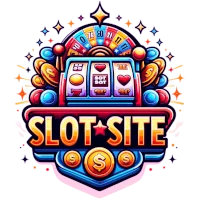Online gambling addiction is a behavioral disorder where an individual compulsively gambles online, despite negative consequences. The accessibility of online platforms and the anonymity they offer make this type of addiction particularly insidious. Unlike traditional gambling venues, online gambling is available 24/7, making it easier for players to lose track of time and money.
Warning Signs of Online Gambling Addiction
Recognizing the signs early can help individuals seek help before the addiction worsens. Here are some common red flags:
- Preoccupation with Gambling: Constantly thinking about gambling or planning the next session.
- Increasing Bets: Needing to gamble with larger amounts to achieve the same level of excitement.
- Chasing Losses: Continuously gambling to try to recover money lost in previous sessions.
- Neglecting Responsibilities: Ignoring work, family, or social obligations due to gambling.
- Financial Struggles: Borrowing money, selling possessions, or accruing debt to fund gambling habits.
- Emotional Changes: Feeling irritable, anxious, or depressed when not gambling.
Why is Online Gambling So Addictive?
Several factors contribute to the addictive nature of online gambling:
- Accessibility: Online casinos are available 24/7, allowing players to gamble anytime, anywhere.
- Anonymity: The lack of face-to-face interaction can make it easier to hide gambling behaviors.
- Game Design: Slot games and other online gambling options often use bright colors, exciting sounds, and near wins to create an addictive experience.
- Ease of Payment: Digital transactions make it easier to spend large sums of money without feeling the immediate impact.
- Social Isolation: Gambling online can be a solitary activity, reducing accountability and increasing the risk of compulsive behavior.
The Impact of Online Gambling Addiction
Gambling addiction can have far-reaching consequences, including:
- Financial Issues: Accumulated debt, bankruptcy, and loss of assets.
- Relationship Strain: Conflicts with family and friends due to secrecy and financial problems.
- Mental Health Problems: Increased risk of anxiety, depression, and even suicidal thoughts.
- Decline in Physical Health: Neglecting self-care and experiencing stress-related health issues.
- Legal Troubles: Some individuals resort to illegal activities to fund their gambling.
Preventing Online Gambling Addiction
Prevention is key when it comes to online gambling addiction. Here are steps to gamble responsibly:
- Set Limits: Establish a budget and stick to it. Never gamble with money you can’t afford to lose.
- Time Management: Set time limits for gambling sessions and take regular breaks.
- Avoid Chasing Losses: Accept losses as part of gambling and avoid trying to win back money.
- Be Aware of Triggers: Identify situations or emotions that lead to gambling and develop healthier coping mechanisms.
- Use Responsible Gambling Tools: Many online casinos offer features like deposit limits, self-exclusion, and time-out periods.
How to Seek Help for Online Gambling Addiction
If you or someone you know is struggling with online gambling addiction, help is available. Consider these steps:
- Acknowledge the Problem: The first step to recovery is recognizing the addiction.
- Reach Out: Talk to family and friends about your struggles. Their support can be invaluable.
- Professional Help: Consult a therapist or counselor who specializes in gambling addiction.
- Support Groups: Join organizations like Gamblers Anonymous or local support groups for community support.
- Self-Exclusion Programs: Many online casinos offer self-exclusion tools to block access to gambling platforms.
Resources for South Africans
In South Africa, several organizations and resources can help those battling gambling addiction:
- South African Responsible Gambling Foundation (SARGF): Offers a 24/7 toll-free helpline: 0800 006 008.
- Gamblers Anonymous South Africa: Provides peer support meetings and resources.
- Online Counseling Services: Platforms like BetterHelp offer online counseling for gambling addiction.
